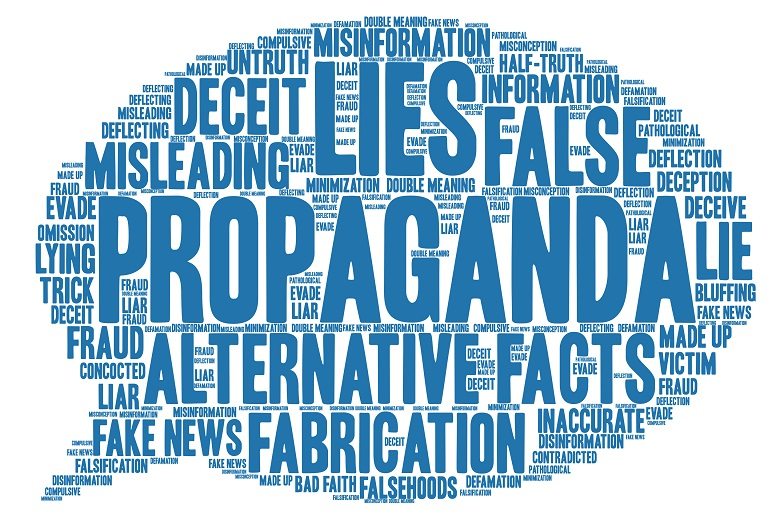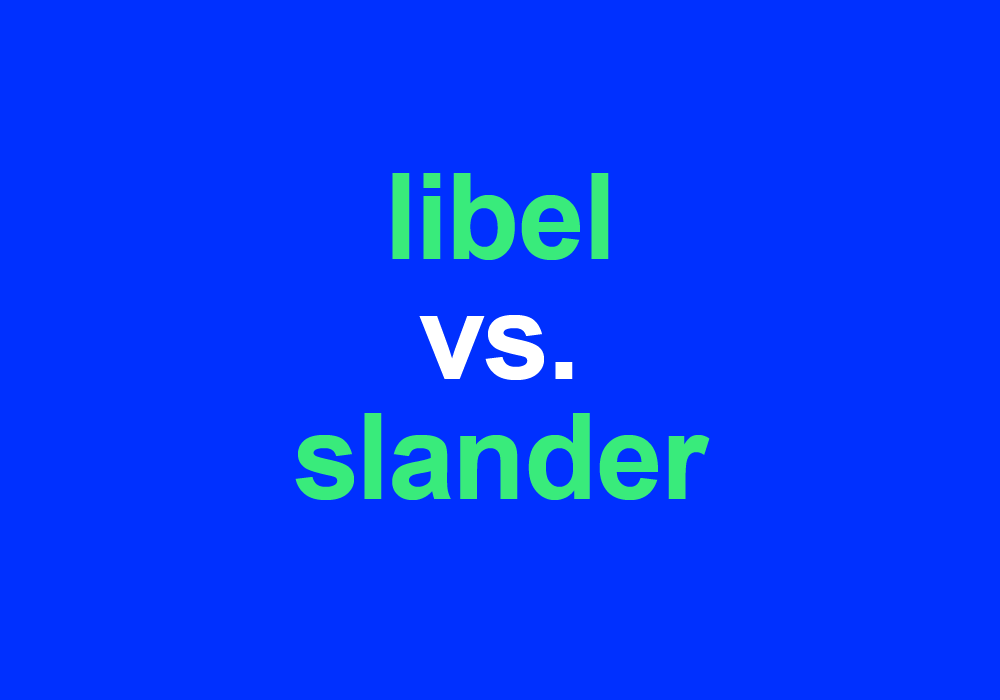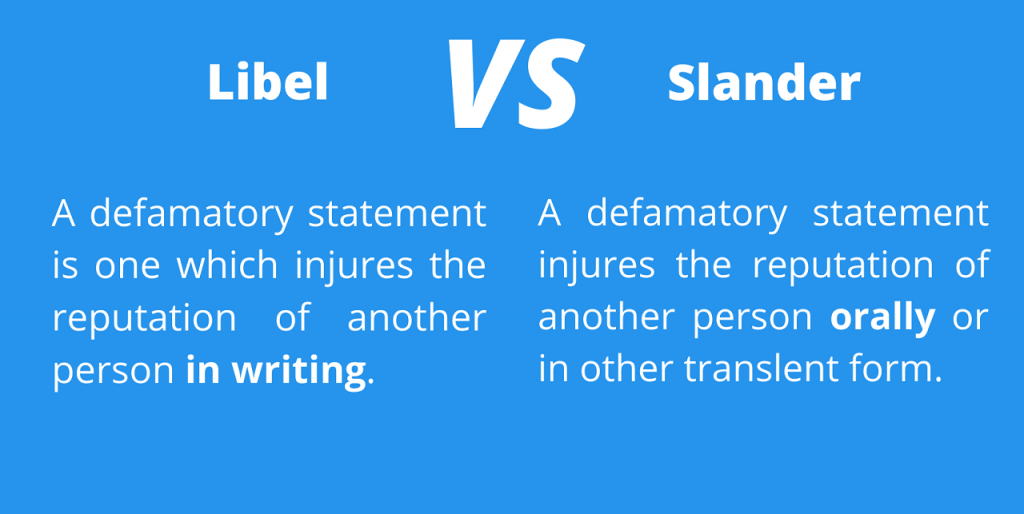How Are the Terms Defamation Slander and Libel Related
Read on for the distinctions between them. Learn vocabulary terms and more with flashcards games and other study tools.

What Is Libel Defamation And Why Do Celebrities Sue Napoli Shkolnik
Defamation Libel Slander and Defences Lecture Defamation is the act of publishing an untrue statement which negatively affects someones reputation.

. It considers what defamation plaintiffs must prove common defenses for media publications the treatment of opinion privacy. DISTINCTION BETWEEN LIBEL AND SLANDER. See defamation and slander.
This entry examines traditional defamation laws chilling effect on journalism and legal developments in light of that self-censorship including aspects of US Commonwealth Continental European and Asian laws. If someone damages your reputation by way of slander or libel you may have grounds to sue for defamation. Start studying Defamation Libel and Slander.
The defamation ceases and desists letter contains details about the offending partys false statements and how the harmed party has been affected. And which has caused or is likely to cause serious harm to the. Also see Per quod and Per se.
Under common law to constitute defamation a claim must generally. Slander is an untrue defamatory statement that is spoken orally. If a party is guilty of defamation it has released a false statement in some form that has since damaged the other partys reputation.
Defamation is an umbrella term that encompasses both slander and libel. Utah slander law are words that were spoken that lowered ones reputation in the community. Slander and libel are types of defamation of character which differ only in the way the false and malicious statements are made.
Code 4101 1 the term Defamation means any action or other proceeding for defamation libel slander or similar claims alleging that. Libel is an untrue defamatory statement that is made in writing. If the statement is made in writing and published the defamation is called libel If the hurtful statement is spoken the statement is slander Defamation is considered to be a civil wrong or a tort.
The difference between libel and slander are as follows. Our lawyers have both successfully defended and pursued a variety of defamation claims. The First Amendment rights of free speech and free press often clash with the interests served by defamation law.
Constitutional Law Court Litigation Crime Educational Malpractice Freedom of Speech. What is the meaning of libel and definition of liable and slander. In Indian law both libel and slander are criminal offenses under Section 499 and 500.
The keyword here is false. Slander is the crime of making a false spoken statement damaging a persons reputation. Utah libel law is the written defamation of character lowering ones reputation in the community.
Written by a US. The action of damaging the good reputation of someone. While libel refers to making false and malicious statements in print or publishing or posting damaging pictures slander refers to the making of damaging remarks verbally.
Slander is defamation by spoken word while libel is defamation by written word. Defamation also known as calumny vilification libel slander or traducement is the oral or written communication of a false statement about another that unjustly harms their reputation and usually constitutes a tort or crime. Libel generally refers to written defamation while slander refers to oral defamation though much spoken speech that has a written transcript also falls under the rubric of libel.
Defamation of Character Slander. There are two terms related to Defamation under Utah defamation law. Libel is a false published written statement damaging a persons reputation.
The action or crime of making a false spoken statement damaging to a persons reputation Libel. If a clients reputation is harmed by false statements made by another whether libelous or slanderous or if they have been accused of defaming another they turn to our firm. Secondly In English Criminal law just libel has been perceived as an offense slander is no offense.
Defamation Libel and Slander We counsel on libel slander and related First Amendment issues. It could be in a blog. The difference between defamation and slander is that a defamatory statement can be made in any medium.
Court of Appeals judge and member of the adjunct faculty of Columbia Law School who practiced media law at the highest level for more than thirty years Sack on Defamation offers strategic guidance for both plaintiffs and defense attorneys and fully covers the basic elements of a defamation claim including. Law distinguished slander from libel because slander was thought to be more harmful. In several countries a true statement can also be considered defamation.
Firstly Libel is routed to the eye while slander is addressed to the ear. A published false statement that is damaging to a persons reputation. As such cases wherein a person is.
These acts must show that a persons statement to a third party harmed your reputation. The reputation could be personal political or business-related. Any oral or printed false statements including photographs or pictures that injure anothers reputation -- also the act of uttering publishing or broadcasting such statements.
Libel is an untrue defamatory statement that an individual writes down. The types and amounts of damages that. According to the Federal Definition 28 US.
Key Differences Between Libel and Slander What is Libel. Both refer to statements made to hurt a persons reputation or his standing in the community. Both libel and slander are forms of defamation of character differing only in the way the person making the damaging remarks goes about it.
The term defamation is an all-encompassing term that covers any statement that hurts someones reputation also called defamation of character. Libel and slander are both types of defamation. There are two different types of defamation.
What Is the Difference Between Slander and Libel. This wide reaching definition is limited within the framework provided by both common and statute law. A defamatory statement which when published tends to expose the complainant in the minds of ordinary people to contempt hatred or ridicule or conveys an imputation disparaging the complainant in his trade.

Libel Vs Slander How To Tell The Difference Dictionary Com

No comments for "How Are the Terms Defamation Slander and Libel Related"
Post a Comment